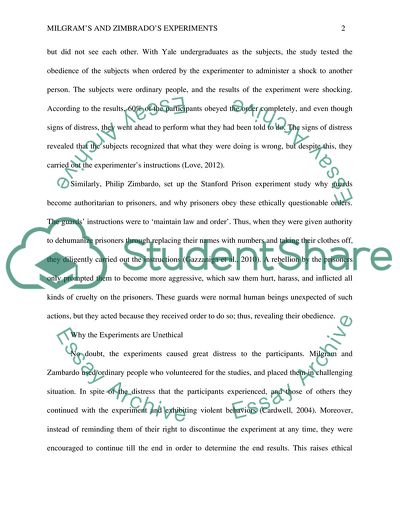Cite this document
(“Ethical Issues in Milgrams and Zimbardos Experiments Essay”, n.d.)
Ethical Issues in Milgrams and Zimbardos Experiments Essay. Retrieved from https://studentshare.org/psychology/1633950-why-arestudiessuch-asmilgrams-and-zimbardos-seen-as-unethical-under-current-codes-of-conduct-when-both-were-judged-ethicalwhen-they-were-originally-carried-out
Ethical Issues in Milgrams and Zimbardos Experiments Essay. Retrieved from https://studentshare.org/psychology/1633950-why-arestudiessuch-asmilgrams-and-zimbardos-seen-as-unethical-under-current-codes-of-conduct-when-both-were-judged-ethicalwhen-they-were-originally-carried-out
(Ethical Issues in Milgrams and Zimbardos Experiments Essay)
Ethical Issues in Milgrams and Zimbardos Experiments Essay. https://studentshare.org/psychology/1633950-why-arestudiessuch-asmilgrams-and-zimbardos-seen-as-unethical-under-current-codes-of-conduct-when-both-were-judged-ethicalwhen-they-were-originally-carried-out.
Ethical Issues in Milgrams and Zimbardos Experiments Essay. https://studentshare.org/psychology/1633950-why-arestudiessuch-asmilgrams-and-zimbardos-seen-as-unethical-under-current-codes-of-conduct-when-both-were-judged-ethicalwhen-they-were-originally-carried-out.
“Ethical Issues in Milgrams and Zimbardos Experiments Essay”, n.d. https://studentshare.org/psychology/1633950-why-arestudiessuch-asmilgrams-and-zimbardos-seen-as-unethical-under-current-codes-of-conduct-when-both-were-judged-ethicalwhen-they-were-originally-carried-out.


